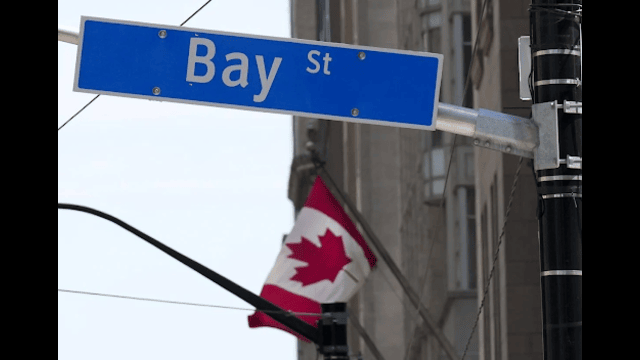
A display showing the S&P/TSX Composite Index is seen at the TMX Market Centre in downtown Toronto on November 11, 2022. The photo was taken by Tijana Martin for The Canadian Press.
Wall Street closed out Thursday on an uncertain note, as growing concerns about U.S. government debt continued to shake investor confidence. Stocks struggled to find direction throughout the day, following a sharp drop the day before that had already set the S&P 500 on course for its worst week in nearly two months.
By the end of the session, the S&P 500 had edged down just 2.60 points to 5,842.01, a move of less than 0.1%. The Dow Jones Industrial Average also barely moved, dipping 1.35 points to close at 41,859.09. The Nasdaq, however, managed a modest rebound, climbing 53.09 points—or 0.3%—to finish at 18,925.73.
The day’s trading reflected a tug-of-war between worries about government borrowing and resilience in some big-name tech stocks. Google’s parent company, Alphabet, rose 1.4%, while Nvidia ticked up 0.8%, helping keep the broader market afloat.
Investors have had a rough ride this week, as bond yields rose sharply. The bond market has become a flashpoint due to unease over a new bill passed in the House of Representatives that aims to cut taxes significantly—moves that analysts say could swell the national debt even more.
The yield on the 10-year Treasury briefly spiked to 4.63% before sliding back to 4.54%. Meanwhile, the two-year yield—which tracks Federal Reserve policy expectations—fell to 3.99%.
Higher bond yields can ripple across the economy. They make it more expensive for the government to borrow money, and they also raise costs for consumers and businesses taking out loans. On top of that, they often lead investors to steer away from stocks.
The House’s new tax legislation, which is headed to the Senate next, would extend several of the tax breaks introduced during Donald Trump’s presidency and add some new ones. It also proposes an early phase-out of certain clean energy incentives. That news sent solar stocks plummeting: Sunrun dropped by a staggering 37.1%, Enphase Energy fell 19.6%, and First Solar lost 4.3%.
Health care stocks also took a hit. UnitedHealth Group slipped 2.1%, and Humana tumbled 7.6% after Medicare officials announced expanded audits of Advantage plans.
On the economic front, the number of people filing for unemployment dipped slightly, indicating continued strength in the job market despite broader economic uncertainties. A separate report from S&P Global showed improvement in both manufacturing and services in May after a sluggish April. Business confidence also saw a slight uptick, thanks in part to a pause in tariff hikes.
However, fears over a fresh wave of tariffs in July led companies to build up their inventories in anticipation of supply disruptions. This scramble contributed to the steepest price increases seen since August 2022, according to S&P Global.
Retailers, including Walmart, are already warning consumers that price hikes are on the way due to increased import taxes.
Global markets mirrored the caution seen in the U.S. France’s CAC 40 dropped 0.6%, while both Hong Kong’s Hang Seng and South Korea’s Kospi fell 1.2%.















